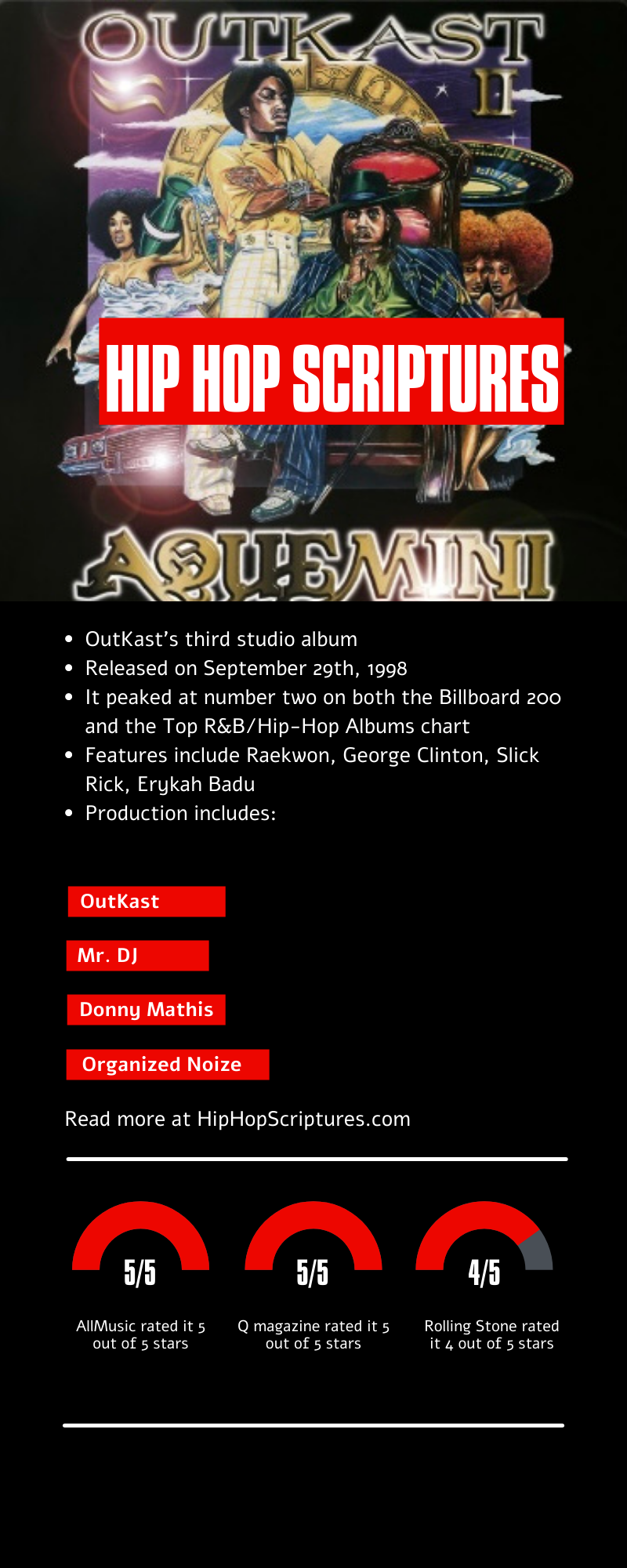OutKast has the dubious distinction of being sued by American civil-rights heroine Rosa Parks (1913–). The first single from their 1998 release Aquemini bore her name, though its lyrics did not mention her. Its chorus referred to her historic 1955 refusal to move to the back of a Montgomery, Alabama bus, where African Americans were expected to sit, which sparked a year-long bus boycott and virtually launched the civil-rights era in the United States. OutKast's song is about the entertainment industry, but its lyrics urge, "A-ha, hush that fuss/Everybody move to the back of the bus."
Parks sued in federal court, naming André ("André 3000") Benjamin, Antwan ("Big Boi") Patton, and their label, Arista, in her suit. Her lawyers argued that by using her name without her permission, OutKast had defamed her and violated her publicity and trademark rights in their song. Lawyers for OutKast and Arista counter-argued that the song was not false advertising, and had not violated her publicity rights; they also claimed that the First Amendment guaranteed the song protection under the freedom of speech rule. Parks' federal suit was dismissed in 1999, but the U.S. Circuit of Appeals in Cincinnati, Ohio, reinstated some of it, and OutKast's lawyers appealed to the U.S. Supreme Court to block the case from going any further. In December of 2003, Supreme Court justices declined to intervene in the matter, paving the way for the a trial set to begin in January of 2005.
In keeping with the New-Age vibe, Benjamin and Patton formed their own boutique label, which they named "Aquemini." The word was made up from a combination of their respective astrological signs, Gemini and Aquarius. They also used it for the title of their third LP. Aquemini reached the double-platinum sales mark, thanks in part to the single, "Rosa Parks." Benjamin and Patton began heading in a new direction in the late 1990s, ditching some of the hallmarks of rap style for a more soulful sound. Though both had previously worn baggy jeans and athletic jerseys onstage, Benjamin began sporting far more flamboyant outfits, which included long blond wigs, trousers made of fur, turbans, boas, and checkered-print suits in dazzling colors. He also adopted "André 3000" instead of his longtime "Dre" tag. They remained in partnership with Reid, who took them along when he became president of Arista Records.
Read more about OutKast here.
